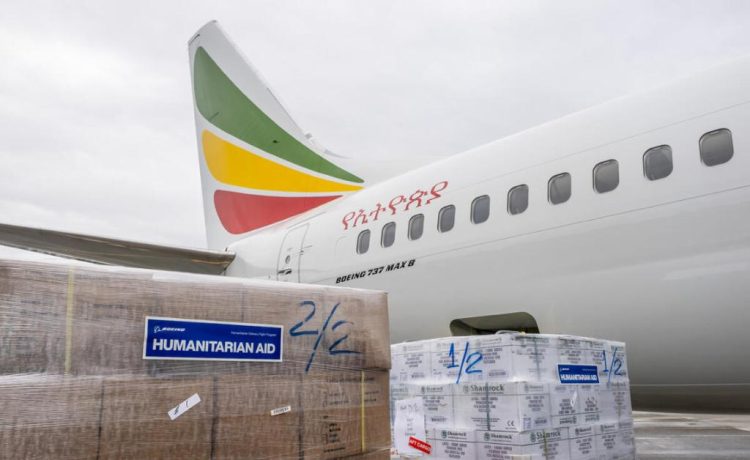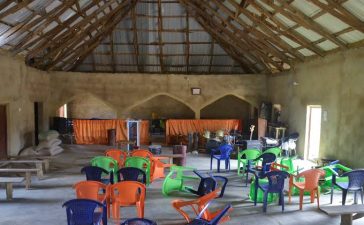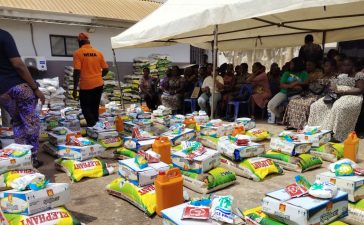Boeing and Ethiopian Airlines have again partnered to bring humanitarian aid to those in need – this time using the airline’s three recently delivered 737-8 airplanes to transport more than 12,000 pounds of supplies to Addis Ababa, Ethiopia.
“Ethiopian Airlines has a long history of collaborating with Boeing on humanitarian flights,” said Mesfin Tasew, Group CEO of Ethiopian Airlines.
“This is our 43rd humanitarian delivery with Boeing, and we are proud to partner with their team to once again bring this support home to Addis Ababa.”
The humanitarian delivery flights departed Boeing’s Everett and Seattle Delivery Centers on Nov. 24, Nov. 26 and Dec. 4 and contained medical supplies, books and school supplies for those in need. Global Ethiopian Diaspora Action Group (GEDAG) provided surgical gloves, which will be distributed by the Ethiopian Ministry of Health’s Pharmaceutical Supply Agency.
Noble Humanitarian Missions (NHM) provided surgical gloves. Mekedonia, an Ethiopian non-governmental organization working to shelter people experiencing homelessness, will lead local distribution efforts for the NHM donated supplies.
Ethiopian Institute of Resilience and Climate Change provided clothing, gloves and bandages, which will be distributed by its Ethiopian nonprofit partner, Wollo Bete Amhara.
“The Humanitarian Flight Program has helped thousands of people in need gain access to critical care items and humanitarian aid over the past 30 years,” said Cheri Carter, vice president of Boeing Global Engagement at Boeing.
“These flights are the latest in a long legacy of service by Ethiopian Airlines for the Ethiopian people, and we are grateful for their continued partnership.”
Boeing’s Humanitarian Delivery Flight Program was launched in 1992 as a collaboration between the company and its customers to help transport humanitarian aid supplies on newly delivered airplanes with otherwise empty cargo holds. To date, there have been more than 200 humanitarian delivery flights. More than 1.7 million pounds of critical supplies have been delivered since the program’s inception







